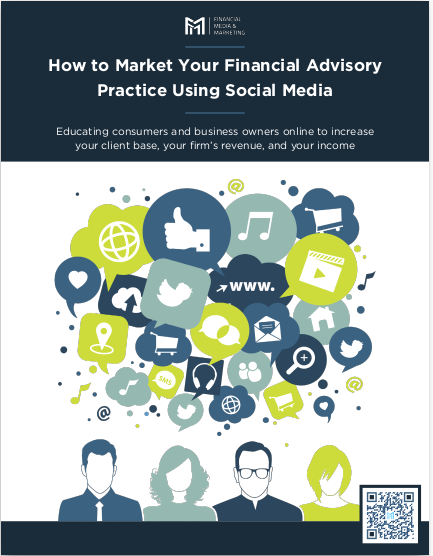Key Takeaways
-
Some financial advisors get more referrals because they actively build trust, maintain strong relationships, and position themselves as the go-to expert.
-
You can increase your referrals by implementing proven strategies like personalizing client interactions, leveraging strategic networking, and offering memorable experiences.
Why Referrals Matter More Than Ever in 2025
Referrals aren’t just nice to have—they’re the lifeblood of a thriving financial advisory business. With an increasingly competitive market in 2025, advisors who don’t have a strong referral network risk being overshadowed. Trust plays a crucial role in financial services, and nothing builds credibility faster than a recommendation from a satisfied client.
But why do some advisors receive a steady flow of high-quality referrals while others struggle to get even one? It’s not luck—it’s strategy. If you’re looking to attract more referrals, you need to take a proactive approach. Let’s break down what works and how you can implement these tactics today.
The Core Principles of a Referral-Generating Financial Advisor
To understand why some financial advisors succeed in generating referrals, consider the principles that set them apart. These advisors:
1. Deliver More Than Expected
Your clients expect solid financial advice, but the best advisors go beyond that. They provide:
-
Proactive communication about market trends.
-
Regular check-ins to review goals and adjust strategies.
-
Educational insights that empower clients to make informed decisions.
-
An approachable, friendly experience that makes clients comfortable.
-
Customized strategies that reflect clients’ specific financial goals.
Going beyond expectations turns a standard service into an exceptional experience—something clients are eager to talk about with others.
2. Build Deep Relationships, Not Just Transactions
A transactional approach rarely leads to strong referrals. Instead, successful advisors:
-
Get to know clients on a personal level.
-
Remember important details, like birthdays or anniversaries.
-
Stay engaged even when there’s no immediate financial need.
-
Offer periodic check-ins to ensure clients feel supported.
-
Provide proactive advice based on industry changes.
Strong relationships lead to trust, and trust leads to more frequent and enthusiastic referrals.
3. Make Referring You Easy and Natural
Even happy clients won’t refer you if the process is unclear or inconvenient. You should:
-
Provide a simple way for clients to introduce others.
-
Give them confidence that their referrals will receive excellent service.
-
Express gratitude when they send new business your way.
-
Create a referral system that rewards clients subtly but meaningfully.
-
Use follow-ups to ensure their referrals have had a positive experience.
The easier and more natural you make the referral process, the more likely clients will participate.
Strategies to Increase Your Referrals in 2025
Now that we’ve established the principles behind referral success, let’s focus on specific strategies you can use today.
Strengthen Your Personal Brand
Your reputation precedes you. Clients refer professionals they trust and respect. To build a brand that attracts referrals:
-
Develop a clear and compelling message about what makes you different.
-
Share valuable insights through blogs, videos, and newsletters.
-
Be present on social media, engaging with both clients and peers.
-
Consistently communicate your values and expertise.
-
Position yourself as an industry leader through educational content.
A strong brand keeps you top-of-mind when clients are considering making a referral.
Ask for Referrals at the Right Time
Timing matters. The best moments to ask for a referral include:
-
Right after a client expresses satisfaction with your service.
-
When you’ve helped them navigate a complex financial decision.
-
During annual reviews, when you reinforce your long-term value.
-
Following a major financial milestone where your advice was critical.
-
When you help a client achieve a significant financial goal.
Avoid asking too soon or making it feel like an obligation. Instead, frame it as an opportunity to help others receive the same great experience.
Leverage Strategic Networking
Your clients aren’t the only ones who can refer business your way. Other professionals—accountants, attorneys, business consultants—work with people who need financial advice. To build strong referral partnerships:
-
Connect regularly with professionals in complementary industries.
-
Offer to share resources or collaborate on client education.
-
Keep relationships strong by providing referrals in return.
-
Establish a network of trusted industry partners.
-
Offer guest appearances in financial podcasts or speaking engagements.
The right strategic partnerships can dramatically increase the number of quality referrals you receive.
Create a Memorable Client Experience
Referrals aren’t just about results; they’re about experience. Clients are more likely to talk about you when:
-
Your onboarding process is seamless and impressive.
-
Your meetings feel engaging, not overwhelming.
-
You add unexpected value, like personalized reports or insights tailored to their specific goals.
-
They feel that you truly listen and understand their concerns.
-
They receive follow-up support that exceeds their expectations.
A great experience makes you stand out in a crowded market, increasing the chances that clients will mention your name when friends ask for financial advice.
Reward and Acknowledge Referrals
People love being appreciated. While financial incentives might not always be possible, there are many ways to thank your clients for referrals:
-
A handwritten note expressing gratitude.
-
An exclusive invite to a financial seminar or appreciation event.
-
A small but meaningful token of appreciation.
-
Public recognition in a newsletter or social media post.
-
A simple but sincere phone call expressing thanks.
Make your thank-you personal and heartfelt. Clients should feel valued, not just like another business transaction.
Overcoming Common Referral Obstacles
Even with the best strategies, some financial advisors still struggle to generate referrals. Here’s how to address common roadblocks:
“My Clients Never Refer Anyone”
If clients aren’t referring you, consider:
-
Are they clear on who your ideal client is?
-
Have you made it easy for them to refer others?
-
Do they feel confident that their referral will receive excellent service?
-
Have you explicitly asked them in a non-pushy way?
-
Are they reminded regularly that you appreciate referrals?
“I Don’t Want to Sound Pushy”
Many advisors fear that asking for referrals might seem desperate. Instead of directly asking, position it as an opportunity:
-
“If you know someone who could benefit from financial clarity, I’d be happy to help.”
-
“I love working with people like you. If you ever come across someone in need of guidance, feel free to introduce us.”
-
“If you ever meet someone unsure about their financial future, I’d love to offer them guidance.”
“I’m Not Getting High-Quality Referrals”
If referrals don’t match your ideal client profile, refine your messaging:
-
Be clear about who you serve best.
-
Educate clients on what makes a good referral.
-
Set expectations upfront about the type of financial planning you specialize in.
-
Use testimonials to showcase the type of clients you work with best.
-
Offer specific scenarios where your services would be valuable.
The Power of Client Trust and Word-of-Mouth Growth
Referrals aren’t just about growing your business; they’re about reinforcing trust. When clients refer you, they’re putting their reputation on the line—so make sure every interaction reflects the highest level of professionalism and care. A well-designed referral strategy ensures that trust continues to grow, keeping your pipeline full for years to come.










